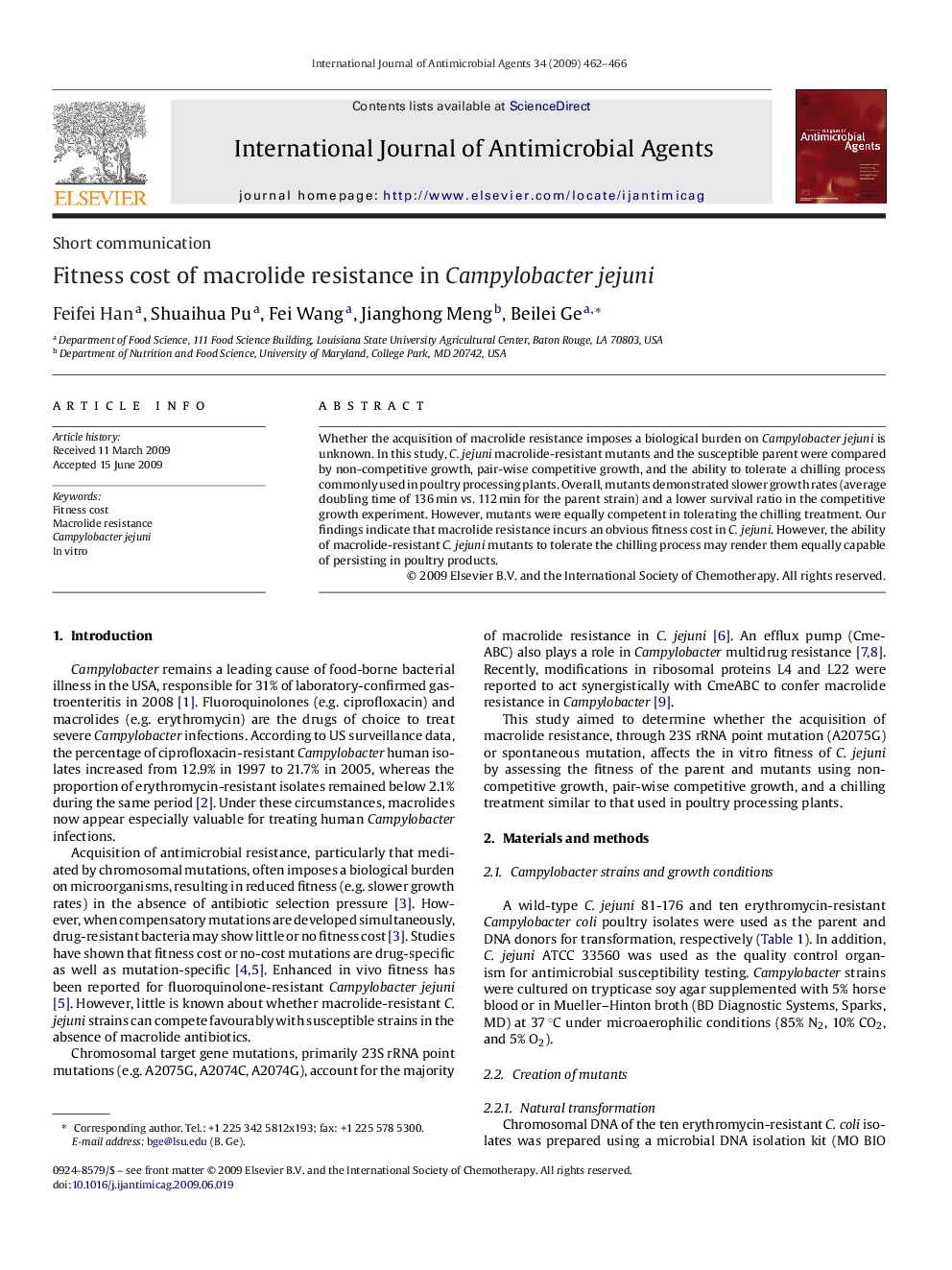| Article ID | Journal | Published Year | Pages | File Type |
|---|---|---|---|---|
| 3359714 | International Journal of Antimicrobial Agents | 2009 | 5 Pages |
Whether the acquisition of macrolide resistance imposes a biological burden on Campylobacter jejuni is unknown. In this study, C. jejuni macrolide-resistant mutants and the susceptible parent were compared by non-competitive growth, pair-wise competitive growth, and the ability to tolerate a chilling process commonly used in poultry processing plants. Overall, mutants demonstrated slower growth rates (average doubling time of 136 min vs. 112 min for the parent strain) and a lower survival ratio in the competitive growth experiment. However, mutants were equally competent in tolerating the chilling treatment. Our findings indicate that macrolide resistance incurs an obvious fitness cost in C. jejuni. However, the ability of macrolide-resistant C. jejuni mutants to tolerate the chilling process may render them equally capable of persisting in poultry products.
